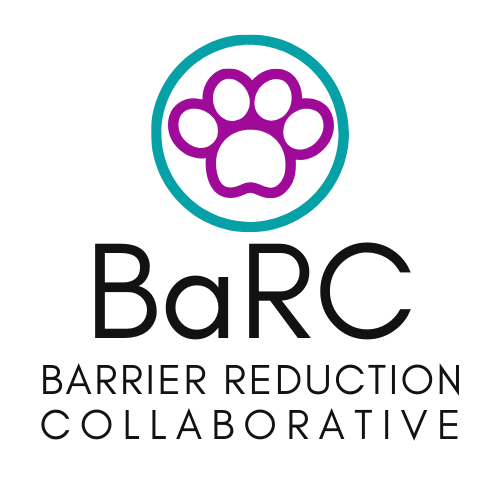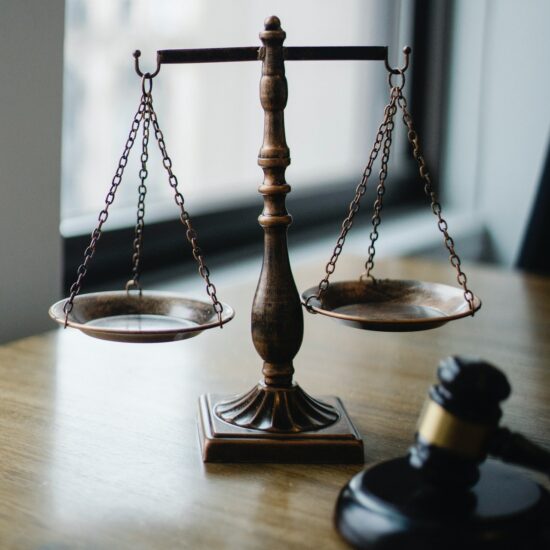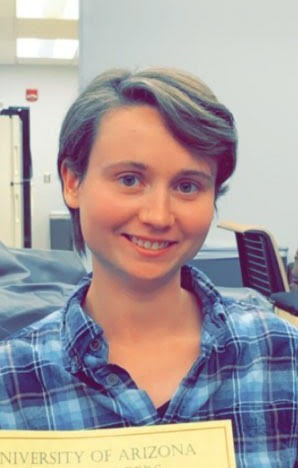Celebrating Our Story: A History of Legal Services in Southern Arizona
Southern Arizona Legal Aid, Inc. (SALA) will be celebrating its 70th anniversary in 2020. We will be planning special celebrations all year, beginning with an updated version of our history – Celebrating Our Story: A History of Legal Services in Southern Arizona. SALA’s Mission is to provide quality legal services to people who would not otherwise have equal access to justice, in ways which affirm their individual and collective dignity, integrity, and power.
SALA has a long and distinguished history of serving its client community. On February 28, 1950, five Tucson lawyers incorporated a legal services program under the name of the Legal Aid Society of the Pima County Bar Association. These founders saw a great need for civil legal services in our community and the worked hard to fill that need. William Dunipace, Oliver Hamilton, Joseph Riley, Robert Tullar and Charles Woods were the incorporators and served as the first Board of Directors. Riley was the first president of the Board, serving in that capacity until 1952. Dunipace, Tullar and Woods also served as Board presidents.
At the beginning, the Legal Aid Society, which was funded by the Pima County Bar Association, relied on the services of volunteer lawyers through a referral system. Frances Wallace (who later worked for the Pima County Attorney’s Office) headed the small, referral program. Eventually, in the early 1960’s, funds were secured through the United Community Campaign (the forerunner to United Way). This allowed for the actual provision of services by a staff of legal aid lawyers. In 1963, Paul Hunter was hired as director of the “new” Legal Aid Society. In addition to Hunter, the program had a second lawyer on the staff — Arthur Vance, Jr. followed by Albert Morrow. Hunter remained as director for two years at which time Delane Carpenter became director for the next seven years.
In the 1960s, during Carpenter’s tenure as Executive Director, the Legal Aid Society secured its first public funding through the federal Office of Economic Opportunity (OEO). The OEO funding began on October 1, 1966. At that time, the program hired its initial staff of OEO-funded lawyers — Emojean Girard as Assistant Director (later she was a Pima County Justice of the Peace), Tony Ching (who later became the program’s Director of Litigation), Mario Cota-Robles and Horace Umberger. Within a couple of months, the lawyer staff was up to eight with the hiring of Arthur Hutton, Nancy Fullbright Jones, Richard Proctor and Gerald Sweeney. In November — one month after the OEO funds began — the staff served 208 clients. A ninth lawyer, Roger Wolf (who became a private immigration lawyer in Tucson), was added to the staff in May, 1967.
By the middle of 1967, the Society had four offices—Northside Office (in the Rillito Area Council Office on North Stone), Southside Office (in the Pueblo Area Council Office), Downtown Office (151 West Council), and the Administrative Office (112 West Pennington).
In January 1968, the program added Gilbert Veliz (later a Pima County Superior Court Judge) to the lawyer staff. A year later, Michael Callahan (later a lawyer in the Pima County Attorney’s Office) was hired. Also, in 1969, the first two Reginald Heber Smith Fellows (“Reggies”) came to the program — Peter Axelrod (now a domestic relations lawyer-mediator in Tucson) and Mark Raven (has been in private practice in Tucson for many years). Within a year of the arrival of Axelrod and Raven, they were joined by three other Reggies: Mike Addis (later a private criminal defense lawyer in Tucson), Lynwood (Woody) Evans (who went on to become the first director of the statewide legal services program in Arizona) and John Tull (who later became Executive Director and is presently a legal services consultant). Also, during 1970, David Lowry (later in private practice in Portland), Jose Lerma (later a judge pro tem in the Santa Cruz County Superior Court) and Peter Eisner (later became a partner in a Tucson law firm and is now a metal-glass artist) joined the staff.
Two more Reggies joined the program in 1971 — Armand Salese (later started his own law firm) and Margarita Bernal who is now serving on the SALA Board. That same year Joyce Holsey came to Legal Aid as a lawyer. Holsey was the first lawyer ever to retire from SALA after being with the program for over 24 years.
In 1974 began the 13-year “John” period of legal aid. John Tull was Executive Director from 1974 to 1980 and was followed by John Balentine (later went into private practice in Tucson) from 1980 to 1987. This was a period of significant growth for the program.
Congress created in 1974 the Legal Services Corporation which replaced OEO as the federal funding source for legal services programs. One of the objectives of LSC was to bring legal services to all areas of the country and much of this growth was to be through existing programs. In response to this mandate, the Legal Aid Society in 1976 expanded to Cochise County and opened an office in Douglas. Fernando Almendarez and Ruben Teran were hired as the first lawyers in that office. Within a year, the program also expanded to Santa Cruz, Graham and Greenlee counties by having a lawyer from the Tucson office circuit ride to those areas. Because of the multi-county nature of the program, the Board approved on April 11, 1977, a name change from the Pima County Legal Aid Society to Southern Arizona Legal Aid Inc. (SALA). In 1979, Navajo and Apache counties were added to SALA’s service area.
During 1979, SALA expanded to cover a number of small, Indian reservations. Four Rivers Indian Legal Services, a SALA component, serves Native Americans on the Ak-Chin, Fort McDowell, Gila River, Salt River, Pascua Yaqui, Camp Verde and Quechan Reservations. The first director of the Four Rivers program was Eric Dahlstrom, followed by Leslie Nixon who is currently serving on the SALA Board. And later, the White Mountain Indian Legal Services, which serves members of the White Mountain Apache Tribe, became a component of SALA.
Since the reign of the “Johns,” SALA has been headed by five different Executive Directors — Brian Paddock, Nancy Trease, Tom Berning (now a Tucson City Court judge), Paul Julien (who now works for the Arizona Supreme Court) and currently Anthony Young (who came to SALA from being manager of the Yuma office of Community Legal Services). The program also has been directed on an interim basis by Peter Eisner, Leslie Nixon and Doris Butler (on two occasions).
SALA has had a very dedicated and committed paralegal, administrative and support staff. Several who began in the 1970’s and 80’s are still with the program. Administrative staff member Doris Butler started in 1976 and is currently the Chief Operations Officer, and Barbara Anderson who also started in 1976 and is currently Administrator/HR Manager. Chris Childs, Intake Receptionish in the Tucson office, started in 1971, and Yolanda Figueroa, Intake Paralegal, in 1976, and Connie Hoyos now of the Bisbee office began in the 1970’s.
In addition to providing excellent day-to-day legal services for its client community, SALA has had a local and national reputation in the area of impact/law reform litigation. This effort has been spear headed by its various Directors of Litigation — Tony Ching, John Biggers, Peter Eisner, John Balentine and Bill Morris. SALA lawyers have successfully challenged many governmental regulations and procedures on due process grounds, unscrupulous consumer and business practices, improper methods of school financing and inhumane jail conditions. And many more—the list is too long to enumerate here.
Many distinguished lawyers and community people have served on the Legal Aid Board of Directors. Concerning the presidency of the Board, such lawyers as Raul Castro (later Governor of Arizona), Tom Chandler, Lowell Rothschild, Richard Duffield, J. Emory Barker, Arthur Goldbaum, Richard Davis, Andy Silverman, Barry Kirschner, Kenney Hegland, Peter Akmajia, Juan Perez-Medrano, and Cathleen Dooley have served in that position. A father and son have been Board presidents: Stanley and Jon Trachta. Four non-lawyers have served as presidents: Rodolfo Garcia, Tito Carrillo, Manny Alvardo and Shirley Molina. The only presidents from outside of Pima County were John Chalmers from Graham County, and Shirley Molina from the Tohono O’Odham Nation. The current president is Fred Petersen of Mesch, Clark & Rothschild.
There has been a long-standing relationship between the Rogers College of Law and Legal Aid. Many law faculty members have served on the Board including one of the original Board members, Charles Woods. The longest service as Board members were probably law school faculty members: Charles Ares, former law school dean, served various terms during three different decades (50’s, 60’s and 70’s), Hegland who was on the Board for over 20 years and Silverman who is still on the Board after 30-plus years. Also, the law school and SALA have had many joint projects including the Neighborhood Law Office and Domestic Violence Law Project.
Many members of the judiciary have served on the Board including William Browning, Alfredo Marquez, Frank Zapata, Stanley Feldman, Robert Buchanan, Gilbert Veliz, Lina Rodriguez, Margaret Maxwell, Margarita Bernal and Gilda Terrazas. In addition to Raul Castro, other politicians who “got their start” on the Legal Aid Board were Stewart Udall (later a U.S. Congressman and Secretary of the Interior) and James McNulty (later a U.S. Congressman).
Today, SALA has six offices in four counties from which it serves a large geographical area—nine of the eleven counties in Arizona. We regularly assess local civil legal needs to ensure we are offering the services most needed in our communities, and our current priority areas are Family Law, Consumer Protection, Eviction Prevention/Unsafe Housing/Home Loss, Public Benefits, and Immigration (related to crime victims). We also serve eleven Native American Communities.
SALA’s dedicated team of attorneys is too small to meet all the civil legal needs of our community. One of the ways we expand our services is through our Volunteer Lawyer Program (VLP). Through VLP, pro bono attorneys provide assistance to clients through self-help clinics and classes, and, as needed, direct referrals to pro bono lawyers.
SALA continues to be committed to ensuring that low income community members have access to civil legal aid because we know that equal access to justice promotes family stability, strengthens neighborhoods, and improves the quality of life for all our communities.



